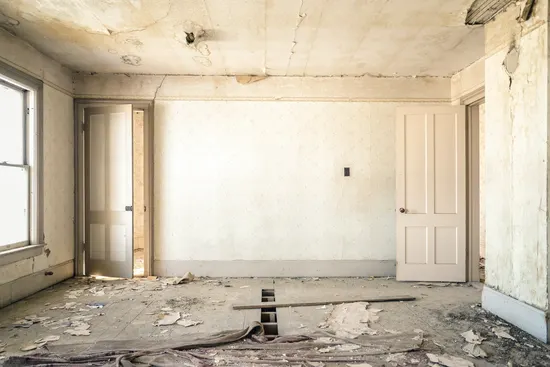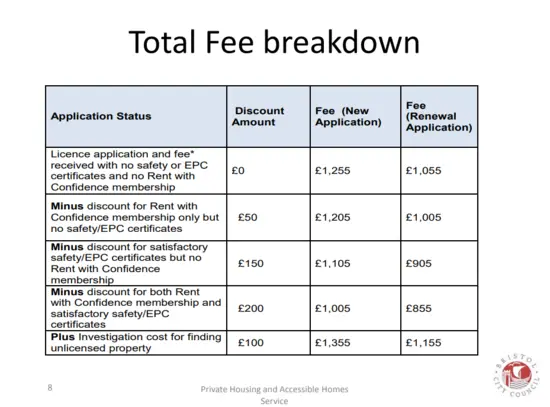What Happens To Renters When A Council Closes Down an Unlicensed HMO?

Far be it from us to say that going after rogue landlords and unlicensed properties is a waste of time, what we can’t help but notice (and see no one really talks about it) is that after all is said and done, efforts at shutting down badly or illegally run properties, usually, don’t make things better for the people who were living in them.
Where do you go if you are forced to move out of an illegally run property? What choices do you have if your landlord violates planning permission and has their property seized by the local council? If the building you live in is shut down, what are you supposed to do about your immediate living situation?
What if you have a family? Maybe, you’ve got complicated health issues which make moving a lot more difficult. Does the council have a plan for people caught on the wrong end of a botched rental? Is there always a place you can move into at the end of it?
No, there isn’t. This begs the question: should the council be more focussed on helping tenants who fall victim to illegal rentals and rogue landlords before they move into these perilous situations or, should local authorities be ramping up their efforts to persecute landlords and shut down illegally run properties more quickly?
Harsh Reality: Is it all about the money?
Council run schemes to catch rogue landlords violating everything from illegally operating HMOs, to failing to make properties fit human habitation, have produced mixed results over the last decade. Whilst improvements to some properties have been made, as well as charges brought against a number of rogue landlords, it seems to be the councils who benefit the most from these schemes.
For instance, Bristol City Council ran a property licensing scheme in the Stapleton Road area between 2013-2018, aimed at improving living standards in the area, cracking down on anti-social behaviour and of course, catching rogue landlords in the act. But of 1207 properties in the area, only 10 landlords were actually proc for violations.

10 landlords in five years is nothing to write home about out of this many properties, but that doesn’t matter to the council. Why? Because this scheme generated £1.2 million in revenue through fines and the cost of issuing licenses which for the council, was very profitable.
But what happened to the tenants forced to leave their properties? What about those who lost their deposits from being illegally held by their landlord? What about the tenants who went 3 months without hot water in their flat, or to those that developed asthma from living in a property with damp for months? This scheme isn’t profitable for tenants, so why are the councils so satisfied with their efforts?
What Real Change Looks Like
It will not matter how many schemes councils run like this, on whatever scale and wherever they choose to across the country. Licensing schemes benefit the councils, not the tenants and even landlords can pass the cost of licensing the property on to their tenants via rent increases so, really, the tenant is never going to wind up better off from similar schemes.
Councils may argue that the revenue generated is being set aside and added to the budget for future projects to improve home standards, but in the wake of Birmingham City Council declaring itself bankrupt, it’s hard to find much faith in anything a council might say publicly about where it’s money is being spent. Furthermore, this is not what the money should be being used for anyway.
Councils need to invest more into policing the Private Rental Sector and enforcing laws, so that landlords cannot break them without being held accountable immediately, and more funding needs to be driven towards creating a more rigorous, and selective vetting process to make sure councils are only issuing licenses to responsible, and proactive landlords.
Furthermore, councils need to invest more into helping tenants deal with troublesome landlords by providing more resources, better access to registered landlords and, an easier way to check if a landlord is registered with the local authority, without having to pay for it and go into a local council’s office, in person.
Marks Out Of Tenancy: Giving Tenants A Voice
Marks Out Of Tenancy exists to empower tenants to challenge unfair and irresponsible landlords, whilst applying pressure to lawmakers at both local and national level, to make real change within the Private Rental Sector. We want both landlords and local government, to be accountable when it comes to tenants rights and renting, and we will continue to assist anyone struggling to live in their own home.
If local government will not lobby the central government for more powers to act, better legislation or more resources to protect tenants, then they must be prepared for tenants to look to take things further. Rating your landlord publicly on Marks Out Of Tenancy, is just the first step in a long journey towards changing the Private Rental Sector, but it has to happen for more changes to follow.
Love your landlord? Leave a glowing review so future renters know they are safe to rent from. Is your landlord acting in a criminal manner or in a way that feels unfair? Be honest about your experience with them so that future tenants of theirs will know what to expect or so that it can be brought to the attention of the local authority.
Join the conversation with Marks Out Of Tenancy today and help us make real change happen in the private rental sector, so we can improve the lives of tenants everywhere. Follow us on social media, like, share and subscribe, and help us reacher as many private tenants as possible.
